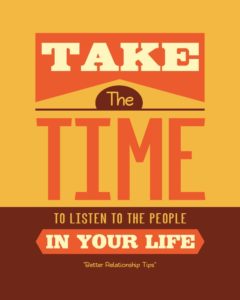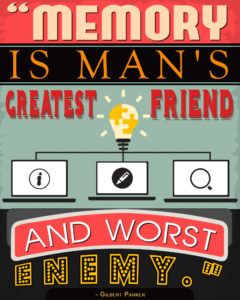Oh crap!!! Here I go again. I’m at a fairly informal gathering. I see people everywhere, but I can’t remember the names. My palms are sweating, and I feel dizzy. I’ve already escaped the 5,4,3,2,1 count of going up to someone to say hi without thinking about it. I feel like an idiot. Oh no, here comes two people I recognize there faces, but I don’t remember their names. What do I do? Oh wait they’re pausing, maybe they forgot my name… Nope, they were just grabbing an hors-d’oeuvre. I’m toast. “Hi -J- How are you? How’s your son and daughters?” Oh, my life just ended, I know it did. I’m so embarrassed, am I blushing? How the hell do I get out of this? There’s the bathroom. No that won’t work I just used it on the way in. Dale Carnegie where are you? Here goes nothing… or maybe everything… Who can tell?
Names, what’s in a name?
 When someone introduces themselves, do you go through the trouble of remembering his or her name?
When someone introduces themselves, do you go through the trouble of remembering his or her name? Is it even important? Why should you remember their name, it seems like most people forget who you are within 5 minutes, or is that just me? Before we answer this raging question, is your name important to you? Is your identity tied to the name or is it just a label that you use so people can pick you out of a crowd, or reference you when you are mentioned in conversation. Does it make any difference when others remember your name? Are you embarrassed to walk up to someone you distinctly know and ask where do I know you from? And while you’re at it, what is your name? Frankly, my heart sinks as I recognized that after I’ve had a great conversation with someone has been seemingly forgotten along with my name. When someone remembers my name, I feel like they cared to remember and that makes me feel important. Just plain common courtesy is that knowing someone’s name is the personal touch in the communication process.
Is it even important? Why should you remember their name, it seems like most people forget who you are within 5 minutes, or is that just me? Before we answer this raging question, is your name important to you? Is your identity tied to the name or is it just a label that you use so people can pick you out of a crowd, or reference you when you are mentioned in conversation. Does it make any difference when others remember your name? Are you embarrassed to walk up to someone you distinctly know and ask where do I know you from? And while you’re at it, what is your name? Frankly, my heart sinks as I recognized that after I’ve had a great conversation with someone has been seemingly forgotten along with my name. When someone remembers my name, I feel like they cared to remember and that makes me feel important. Just plain common courtesy is that knowing someone’s name is the personal touch in the communication process.
“Remember that a person’s name is to that person the sweetest and most important sound in any language.”
– Dale Carnegie
When you say someone’s name when you see them, it sets a tone of comfort and a familiar family/friend atmosphere at a subconscious level. You may not realize, but the most people body language and demeanor change automatically when they hear someone refer to them directly by there name at the beginning of a conversation. The act of not only remembering their name but the fact that you use in it conversation lets them know you care about them as a person. Obviously, you don’t use your friend’s name unless it’s a close acquaintance you haven’t seen for a while or it’s in a formal setting, instead yoyo most likely greet them with a less formal nickname… In my case its “Hey –J – how are you when people see me.” Or “Hey bro!!! What’s up?”.
There is a cure for forgotten name Idis!!!
No, it’s not an injection or a pill. It’s going to take conscious effort, but over time it may just become second nature. Now the big warning is sure not to make it appear you are on a mission or have an agenda; you are just trying to improve your communication experience not write a manifesto. I’ve seen people try to remember my name, and it’s someone embarrassing and uncomfortable, even creepy. I don’t’ mind if someone shakes my hand and says my name, but when they stare deep into your eyes with a look on their face of constipated concentration as if they are trying to hide the fact they backed into your car. Well, I’m sure you know exactly what I’m talking about. There are enough people that act like this feel free to pay attention if you haven’t seen it yet, I’m sure you’ll soon find at least one.
 Most of what I’m talking about here will be found in the book “How to Win Friends and Influence People in
Most of what I’m talking about here will be found in the book “How to Win Friends and Influence People in the Digital Age” by Dale Carnegie and Associates. It’s like the new an improved version of the book that was written in the early part of the 20th century, and it accommodates many of the eccentricities in communication brought about by the newer generations. It and it’s counterpart“ How to Win Friends and Influence People” are one of the best selling self-help books available today, and I highly recommend the Digital Age version to my clients. If’ you don’t have time to read do what I did and get the audiobook. Although the stories may seem a little dated, the concepts are still evergreen and using them to remember others name will get you both noticed and appreciated for your seemingly natural efforts.
the Digital Age” by Dale Carnegie and Associates. It’s like the new an improved version of the book that was written in the early part of the 20th century, and it accommodates many of the eccentricities in communication brought about by the newer generations. It and it’s counterpart“ How to Win Friends and Influence People” are one of the best selling self-help books available today, and I highly recommend the Digital Age version to my clients. If’ you don’t have time to read do what I did and get the audiobook. Although the stories may seem a little dated, the concepts are still evergreen and using them to remember others name will get you both noticed and appreciated for your seemingly natural efforts.
If you like me naturally suck at remembering names you may need to make a conscious effort to move the name from short-term to long-term memory. Sadly for most repeating it again and again in your head, well probably will only make you seem like your distracted or perhaps planning something nefarious as soon as the conversation is over. So unless you want to look a bit dork-ish, I probably would avoid this technique.
Figuring it out
A person name is a valuable instrument that is usually rooted in their identity. Forgetting it can be embarrassing and frustrating for both parties. In some cultures, it’s an ultimate insult not to not only remember their name but to use it actively because it closely associates them to their lineage and family. Their name is a reflection of where they came from, and their extended family is valued to them higher than almost anything they own. Therefore, it just makes sense that if you use their name, not too much of course, it will create a subliminal value exchange and let them know you care about them. To start using it at the beginning and end of the conversation; Perhaps take the time to read Dale Carnegie’s book “How to Win Friends and Influence People in the Digital Age.”
– J –